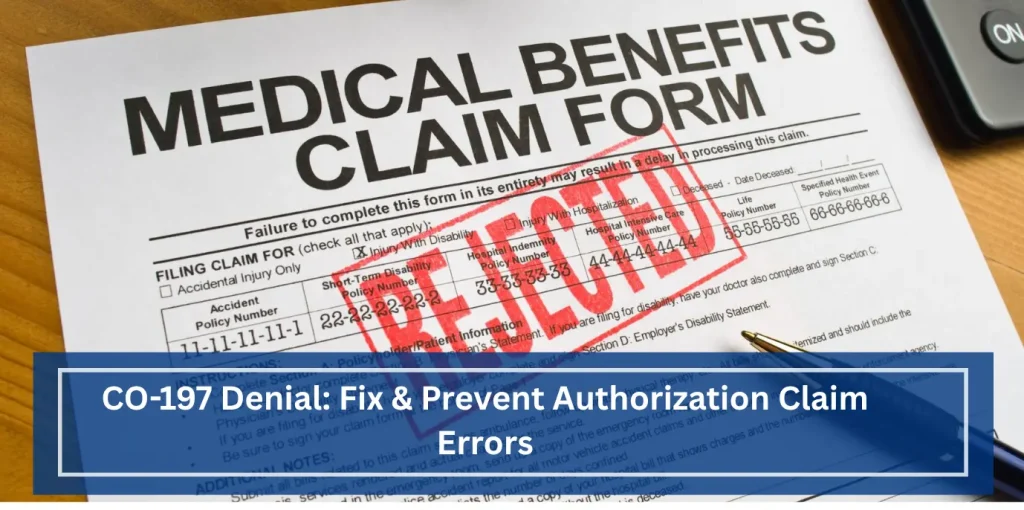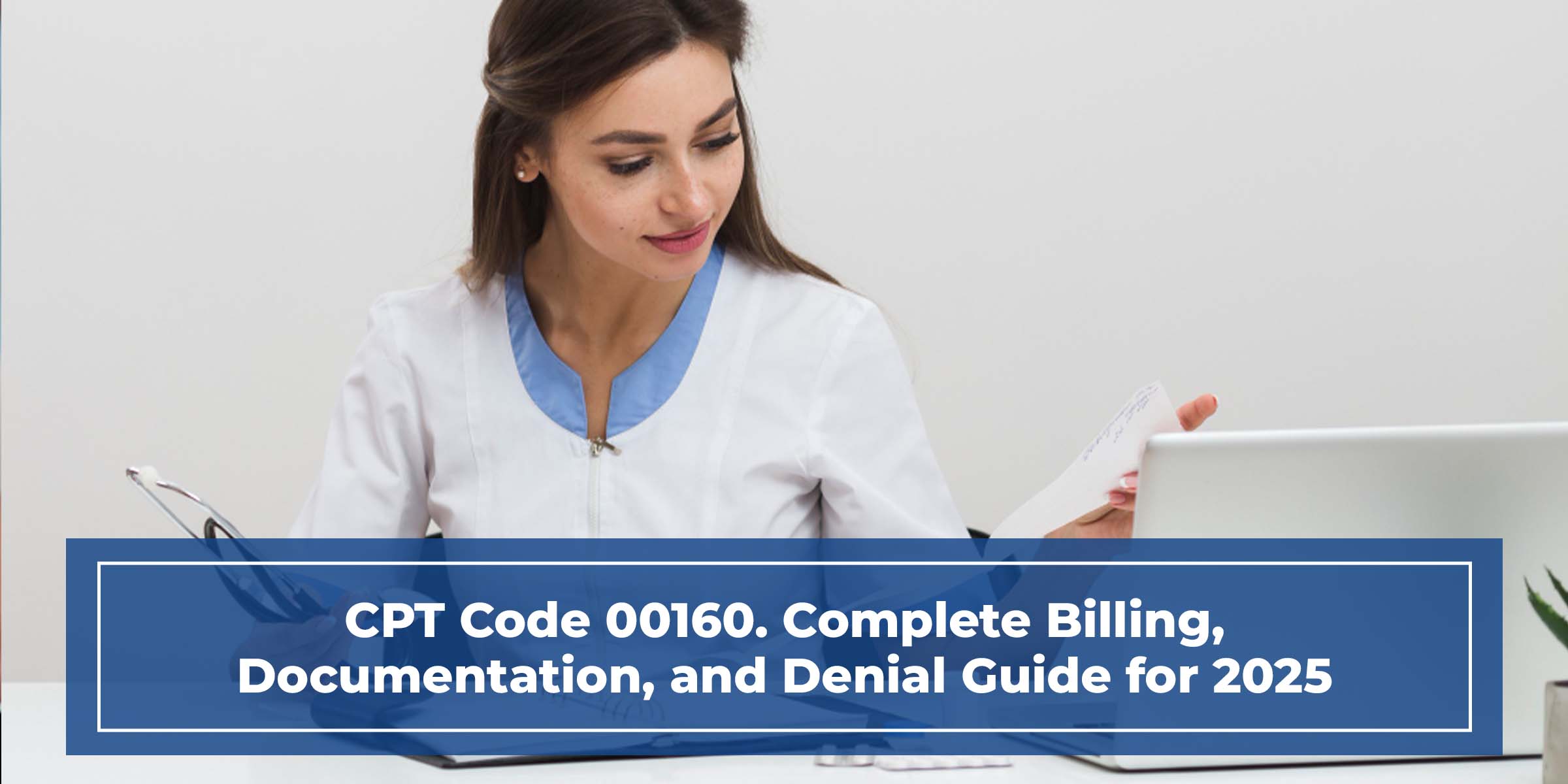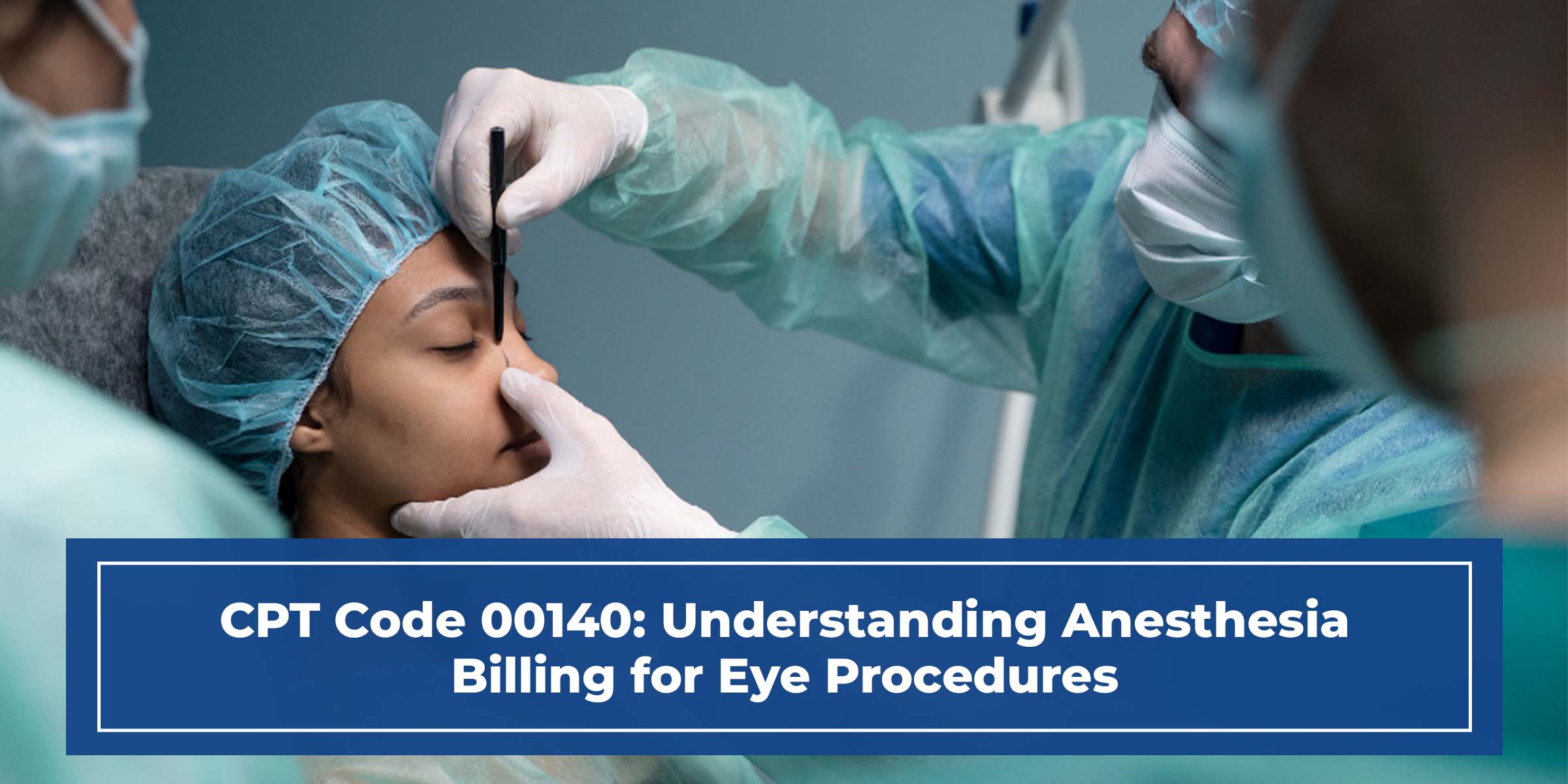Have you ever noticed why assured insurance claims are rejected despite following proper billing procedures? Dealing with a CO-197 refusal can cause major disruptions in the medical billing process and delay payments. According to industry data, denials based on missing precertification or permission account for roughly 20% of all insurance claim rejections. This type of denial occurs when a claim is submitted without the payer’s prior authorization, resulting in administrative delays and potential revenue loss for healthcare providers.
This blog will explain what causes a CO-197 denial and why precertification is a key stage in the claims process. According to studies, companies that apply strict precertification standards can decrease denial rates by up to 30%, enhancing cash flow and operational efficiency. Recognizing these issues early allows medical billers and providers to reduce claim denials and streamline the revenue cycle.
We will additionally cover practical procedures for resolving CO-197 denials, as well as the most typical causes for them. Whether you work in medical billing, coding, or healthcare administration, this guideline provides data-driven solutions for efficiently managing CO-197 denials and reducing expensive claim delays.
What is a CO-197 Denial?
This section describes the CO-197 refusal code and defines prior authorization and authorization. Understanding these terms is crucial for addressing claim denials due to missing approvals.
Understanding CO-197 Denial Code
The CO-197 refusal indicates that a claim has been denied due to a lack of required precertification or prior permission. Before payment, insurers require this step to ensure that the planned service or operation fulfills medical necessity requirements. Failing to get precertification results in a refusal, which delays compensation for healthcare services.
This denial has an impact on the revenue cycle by requiring claim rejections to be resubmitted with the appropriate documentation. Recognizing CO-197 denials early helps medical billers and coders avoid delays and repeat errors. The denial is prevalent among both Medicare and private insurance programs.
Precertification vs. Authorization: What’s the Difference?
Precertification and authorization are sometimes used interchangeably, but have different scopes:
Precertification is the process of obtaining clearance from an insurer before providing specific healthcare services.
Authorization is a comprehensive phrase that encompasses not just precertification but also continuing treatment authorization and equipment requirements.
Common Reasons for CO-197 Denials
This section covers the primary causes of CO-197 denials. Recognizing these errors early on helps prevent claim rework and promote cleaner, more accurate submissions.
Missing or Incomplete Precertification
One of the most common reasons for a CO-197 denial is submitting a claim without documentation of needed precertification. Many payers need permission for certain CPT or HCPCS codes, particularly for diagnostic imaging, surgery, and specialized treatments. If the provider provides the service before approval is obtained related to the claim, payment can often be refused.
Authorization requests might also be incomplete. The authorization can often be denied due to missing paperwork, incorrect CPT codes, or incompatible provider IDs. These concerns cause delays and higher denial rates. Before service, it is critical to verify payer-specific permission requirements.
Late Submission of Authorization
Authorizations are time-critical. If the provider receives clearance but files the claim after the insurer’s authorization window has closed, the claim may still be refused under CO-197. This is typical in emergencies or when there is a delay in back-end processing.
Many commercial plans include retrospective approval under restricted circumstances. However, relying on post-service approval carries significant risks. Billing departments should keep track of submission deadlines to avoid rejections due to expiry.
Insurance Policy Changes and Coverage Limits
Policy changes, cancelled plans, and benefit exclusions can all result in authorization issues. If the patient’s coverage changes but the physician submits an authorization using out-of-date information, it may not be consistent with the new plan. The insurer will then refuse the claim owing to an invalid or absent precertification.
On the day of service, providers and billing teams should double-check patient eligibility and active policy information. Without this, the chance of CO-197 denial increases, particularly when patients change employment, insurance networks, or plan types.
How to Fix CO-197 Denials
This section describes how providers and billing professionals may respond to and prevent CO-197 denials. It focuses on practical measures that are consistent with existing payer guidelines and document requirements.
Verify Precertification Requirements Before Service
Before performing a procedure that requires prior permission, check the payer’s precertification guidelines. Use payer portals, plan manuals, or contact the insurance provider directly. The documentation should include:
- Authorization Reference Number
- Authorized CPT/HCPCS codes
- Dates of service covered
- Provider NPI and location, if needed.
Correct and Resubmit Denied Claims
When a CO-197 denial is issued, read the denial reasons. If a mistake occurs (for example, authorization was acquired but not connected), fix the claim and resubmit with supporting documentation.
- Proof of Prior Authorization
- Letter of medical necessity.
- Timely filing of evidence, if applicable.
Communicate with Insurance and Patients
If the denial is genuine and money cannot be recovered, notify the patient clearly and immediately. Explain the authorization necessary, the rationale for the refusal, and the ability to appeal. Some patients may be able to file a grievance or seek an exemption.
Also, engage with the insurer’s provider representative to check policy regulations and request training if precertification denials in medical billing occur frequently. Keep a record of all communications.
Medical Billing Denial Codes List: Where CO-197 Fits
Denial codes explain why a claim is not paid. Understanding CO-197 rejection and other equivalent codes helps to minimize recurrent mistakes and submit correct appeals.
Overview of Common Authorization-Related Denial Codes
Authorization-related denials usually imply missing, late, or incorrect approvals. Here are the important codes that affect revenue:
- CO-197: Precertification or authorization required but not obtained.
- CO-198: Precertification expired before service.
- CO-199: Authorization is missing for a referred service.
- CO-200: Procedure not covered by the plan or outside the authorized scope.
Why Understanding Denial Codes Improves Revenue Cycle Management
Understanding the importance of rejection codes enables faster repairs with fewer delays. Accurate usage of the medical billing denial codes list aids internal auditing and training. This also decreases the time spent on appeals and income loss.
Billing teams should:
- Use denial reports to monitor trends.
- Train front desk and prior authorization personnel on payer-specific needs.
- Track changes in authorization rules by payer type.
Conclusion
CO-197 rejections are avoidable billing errors that indicate a missing or improper permission. Addressing them early necessitates a thorough awareness of payer policies, reliable documentation, and consistent verification protocols. By recognizing frequent reasons such as expired precertification, policy changes, or incomplete requests, billing teams may take proactive action to prevent rework and delays.
Routine rejection pattern reviews, payer updates, and authorization training for employees can all help to prevent mistakes. Keeping up with regulations guarantees cleaner submissions, preserves income, and facilitates prompt payment. Accurate processing of CO-197 denials ensures that billing operations run smoothly and claims procedures go ahead.
FAQs
What does CO-197 Denial mean in medical billing?
CO-197 Denial means a claim was rejected due to missing or incomplete prior authorization. It indicates the insurer didn’t approve the service in advance.
How can I prevent CO-197 denials?
Verify authorization requirements before services, confirm CPT codes, and track deadlines. Always document approvals and attach them to claims.
Can I appeal a CO-197 denial?
Yes, you can appeal by resubmitting the claim with proof of authorization and medical necessity. Follow payer-specific appeal procedures.
What are the common causes of CO-197 denials?
Missing precertification, expired authorizations, incorrect provider or CPT codes, and outdated insurance details are typical causes.
Do all services require prior authorization?
No, only specific procedures, imaging, surgeries, or high-cost treatments often need precertification. Check each payer’s policy guidelines.





